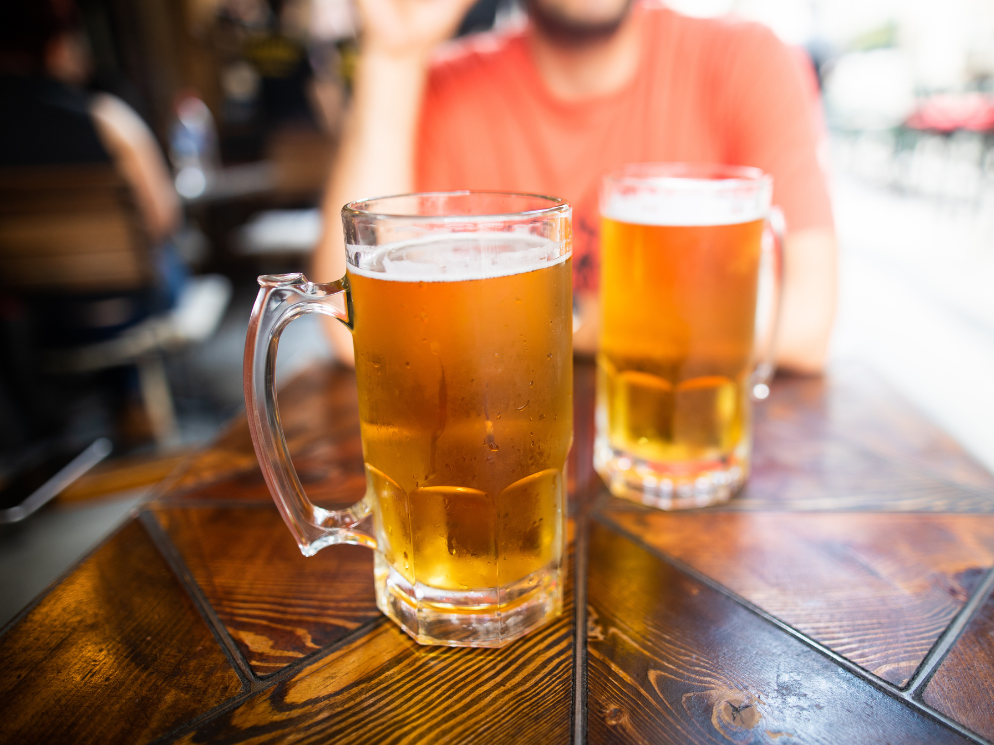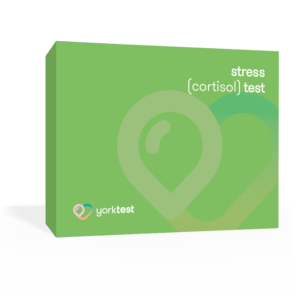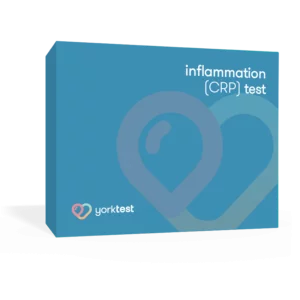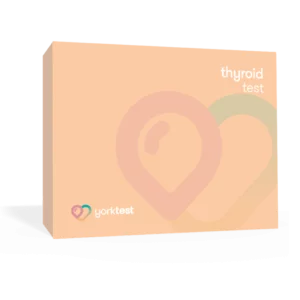Beer is one of the world’s most popular alcoholic drinks and is enjoyed by millions. However, for some people consuming beer can lead to unpleasant and even severe reactions, indicating a potential beer allergy or intolerance.
While true beer allergies are relatively rare, many people experience adverse symptoms after drinking beer, which may stem from an intolerance or sensitivity to one or more of its ingredients. These reactions can range from mild discomfort to potentially life-threatening situations – which is why being aware of the symptoms is absolutely crucial.
What is a Beer Allergy and Intolerance?
Confusingly, the terms “beer allergy†and “beer intolerance†are used interchangeably, but there is a distinction between the two which is important to understand.
A beer intolerance is also known as a “beer sensitivity†and is a non-allergic adverse reaction to one or more compounds that are present in beer. Unlike an allergy, a beer intolerance does not involve the immune system and is usually not life-threatening. However, it can still cause unpleasant and uncomfortable symptoms. It is a digestive or metabolic issue that occurs when the body lacks specific enzymes or has difficulty breaking down certain compounds within the beer. This can lead to various symptoms, but it does not involve the immune system.
However, an allergy is an overreaction of the immune system to a specific substance, such as a food protein or other allergen. In the case of a beer allergy, the immune system mistakenly identifies certain components in beer as harmful and triggers an allergic response, which can be severe and potentially life-threatening.
There are also several misconceptions surrounding beer allergies and intolerances.
- All adverse reactions to beer are allergies: This is not accurate. While true beer allergies exist, many adverse reactions are actually intolerances or sensitivities to specific ingredients in beer.
- Beer allergies are widespread: In reality, true allergies to beer are relatively uncommon. Most people who experience discomfort after consuming beer are likely dealing with an intolerance or sensitivity.
- Gluten is always the culprit: While gluten intolerance (such as coeliac disease) can cause adverse reactions to beer, there are other potential triggers, including yeast, sulphites, and even certain grains that are used in the brewing process.
Causes of Beer Allergy & intolerance
Beer contains several ingredients that could potentially trigger reactions. The most common ones are the grains used during brewing, hops plant, yeast and other preservatives.
Beer is primarily made from grains like barley, wheat, rye, and sometimes oats. They contain proteins, including gluten, which can trigger reactions in individuals with coeliac disease or non-coeliac gluten sensitivity. They may experience digestive issues, skin rashes, and other symptoms when consuming gluten-containing beers.
Hops are flowers which are used to add that bitter flavour to beer. It contains compounds called alpha acids and beta acids, and some people may be sensitive to them.
The yeast used in the fermentation process can also cause reactions in individuals with yeast allergies or sensitivities. Certain types of yeast, such as Brewer’s yeast, may be more problematic for some people.
Beer also naturally contains the compound histamine, which can trigger reactions in those with a histamine allergy. Symptoms can include headaches, feeling flushed and digestive discomfort.
Signs & Symptoms of a Beer Allergy or Intolerance
The signs and symptoms associated with beer intolerance and beer allergy can overlap, but there are some distinct differences. While beer intolerances usually cause digestive and inflammatory reactions, beer allergies involve the immune system and can potentially lead to more severe symptoms.
Beer Intolerance Symptoms
Digestive Symptoms
Digestive issues are among the most common reactions to beer intolerance, as the body struggles to break down and process certain ingredients:
- Bloating: Drinking beer can cause excessive gas buildup, leading to an uncomfortable feeling of fullness and bloating in the abdomen.
- Gas: Beer intolerance may result in increased flatulence due to the body’s inability to properly digest certain components.
- Diarrhoea: In some cases, beer can trigger diarrhoea (especially if the intolerance is severe).
- Nausea: Feeling nauseous or even vomiting can occur after consuming beer, particularly if consumed on an empty stomach.
Skin Reactions
Beer intolerance can also manifest via various skin-related symptoms:
- Rash: Some individuals may develop red, itchy rashes or skin irritations after drinking beer.
- Hives: Hives, or raised, itchy welts on the skin can be a sign of an allergic reaction to certain ingredients in beer.
- Eczema: For those with eczema or other skin conditions, consuming beer may worsen symptoms and trigger flare-ups.
Respiratory Symptoms
In some cases, beer intolerance can affect the respiratory system, leading to:
- Congestion: Beer can cause stuffy or runny noses, as well as sinus congestion.
- Wheezing: Individuals with beer intolerance may experience wheezing or difficulty breathing due to airway constriction.
- Difficulty breathing: In severe cases, beer intolerance can lead to shortness of breath or laboured breathing.
Beer intolerance can also cause the following symptoms:
- Headaches
- Fatigue
- Joint pain
Beer Allergy Symptoms
In addition to the above symptoms, beer allergies can trigger an immune system response leading to more severe reactions such as:
- Swelling of the lips, face, tongue, or throat.
- Difficulty swallowing or breathing.
- Wheezing or nasal congestion.
- Abdominal pain or cramps.
- Dizziness or lightheadedness.
- Rapid or irregular heartbeat.
- Anaphylaxis (a severe, whole-body allergic reaction that is potentially life-threatening).
Beer allergy symptoms can progress rapidly and may require immediate medical attention. If you believe that you or someone else is suffering from a beer allergy or intolerance, we advise you to contact a medical professional immediately and call 999.
A healthcare professional will be able to give you a proper diagnosis and recommend treatment, which might include taking an allergy test or adopting an elimination diet to identify the specific triggers and determine whether you have a beer intolerance or a true beer allergy.
Diagnosing a Beer Allergy or Intolerance
If you experience uncomfortable symptoms after consuming beer, like those we’ve mentioned above, it’s essential to seek proper diagnosis to determine whether you have a beer intolerance or a beer allergy.
The first step is to consult a medical professional: such as your GP or an allergist. They will take a detailed medical history, inquire about your symptoms, and potentially recommend further testing.
Allergy Testing Options
If they suspect you have a beer allergy, they may recommend one or more of the following options:
- Skin prick test: This test involves introducing small amounts of potential allergens (barley or yeast) onto the surface of your skin. When the skin is pricked, the allergen is able to travel beneath the skin. If the skin shows any signs of redness or itchiness, it may indicate an allergic reaction.
- Blood test: A blood sample can be analysed for the presence of specific antibodies that the body produces in response to allergens. This test can help to identify allergies to specific beer ingredients.
An elimination diet is another way that medical professionals like to diagnose an allergy. This involves removing all potential trigger foods, including beer and its ingredients, from your diet for a specified period. If your symptoms improve during this time, specific foods or ingredients can be reintroduced one by one to identify the culprit.
During this process, you’ll be asked to keep a detailed food diary to track your symptoms and reactions.
Managing Your Beer Allergy or Intolerance
Getting diagnosed with any allergy or intolerance isn’t the most ideal situation, especially if consuming the allergen is part of your lifestyle and culture. However, for your own health and safety you should do your absolute best to avoid the specific allergens and ingredients found in beer that you are reactive to.
Here are some tips to help you steer clear of potential triggers:
- Read labels carefully: Always check the ingredient lists on beer labels and be mindful of any potential allergens or triggers, such as barley, wheat or yeast.
- Opt for alternative grains: If you’re sensitive to gluten or certain grains used within traditional beer brewing, consider trying beers made from alternative grains like rice, sorghum, or millet.
- Be cautious or craft beers: Craft beers can contain unconventional ingredients that may trigger reactions, so research the ingredients before consuming it.
- Avoid cross contamination: If you have a severe beer allergy, be mindful of potential cross-contamination risks, such as shared glassware or preparation surfaces.
If you’d rather avoid beer altogether (understandably), then there are lots of other options, both alcoholic and non-alcoholic:
Ciders & wines
Hard ciders and wines may be suitable alternatives for some individuals with beer intolerances or allergies, but it will depend on their specific triggers.
Non-alcoholic beers
Non- alcoholic beers can still contain traces of allergens, but they’re a much safer option for those with mild beer intolerances or sensitivities.
Cocktails
Cocktails and mixed drinks made with spirits like vodka, gin, or tequila can be great alternatives, as long as you avoid any beer-based mixers.
Mocktails and non-alcoholic drinks
For those who prefer non-alcoholic options, there are plenty of creative mocktails and non-alcoholic beverages available too.
If you find yourself feeling uncomfortable in social situations where people around you are drinking beer, don’t hesitate to be upfront and honest with your peers or friends about your dietary restrictions. Allergies are common, so most people will be understanding.
You could also consider bringing your own alternative drinks to social gatherings, as it may not always be possible to order a specific drink at the location. This way you won’t feel singled out and you can enjoy your own safe option instead.













